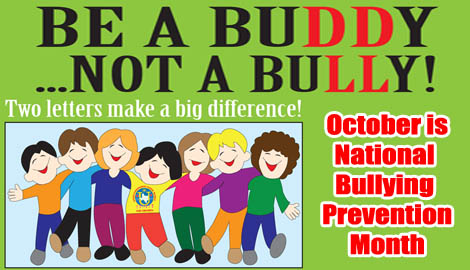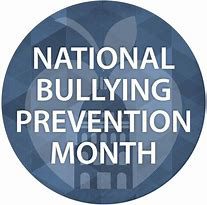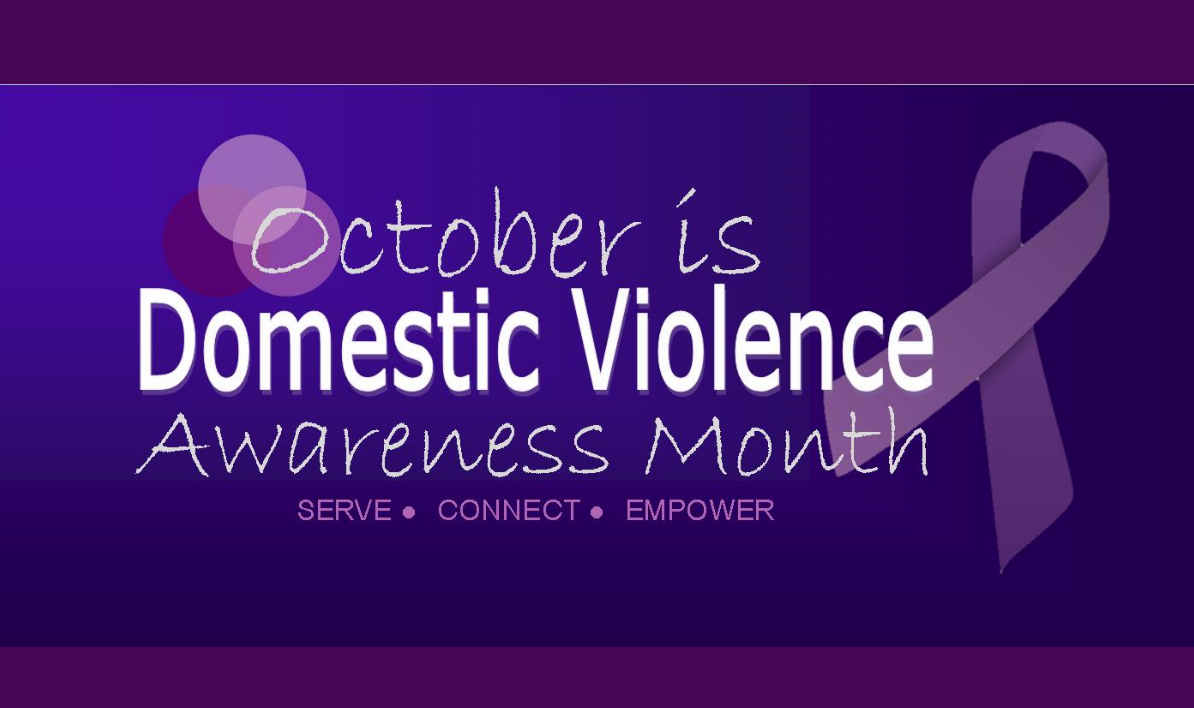October is National Bullying Prevention Month

Advice for Teens Who Are Experiencing Bullying
Drama. Bullying. Teasing. Harassment. No matter what you call it, it hurts. If you’re pushed, hit, or your things are ripped off or trashed, it can
hurt physically. If you’re ignored by friends or cruel things are posted about you online, it can hurt emotionally. If this happens to you, you’ve
probably asked yourself, “Why me?” You know how painful it is to be treated this way.
So seriously, what can you do? A LOT!
You can take back control, but you don’t have to do it on your own. Remember, bullying is never your fault and
you have the right to make it stop. Begin taking back control by talking to your parent or an adult you can trust. Then check out these three
steps for handling the situation at school.
1. Know That You Are Not Alone
Unfortunately, bullying happens to a lot of youth. It happens in small schools, large schools, rural schools, and city schools. It can happen in
preschool, high school, and every school in between. It happens in Australia, Argentina, and all around the globe.
Sometimes people say that bullying is just part of growing up or that you should just “deal with it” and it will go
away. This is NOT true. Even though bullying happens to a lot of kids, that doesn’t ever make it right. No one
deserves to be bullied, everyone deserves respect, and everyone has a right to feel safe at school.
2. Be a Self-advocate
Being a “self-advocate” means speaking up for yourself, telling people what you need, and taking action. Bullying
can be stopped, but you need a plan. First, think about what you can do to change your situation, and then make
an action plan.
3. Assert Your Rights
Every student has the right to feel safe at school. If one adult isn’t able to help you, don’t give up! It is your right to
talk with another adult, such as a parent. When you do speak to a teacher, an administrator, or a person you trust
at school:
•Share all of the information in your action plan.
•Ask: “What can be done so I feel safe and other kids do, too?”
•Tell adults that there are laws outlining the school’s responsibility in handling bullying situations. You
may have additional protections under federal law when the bullying is about:
■ Race, color, or national origin
■ Sex
■ Religion
■ Disability
State and local laws may provide additional protections on other bases, including sexual orientation. Some adults may not know this, so clue them in and keep talking until someone understand.
No matter what you call it, bullying is painful. But you don’t have go through it alone! There are people who will help you, and it is your right to be safe.

